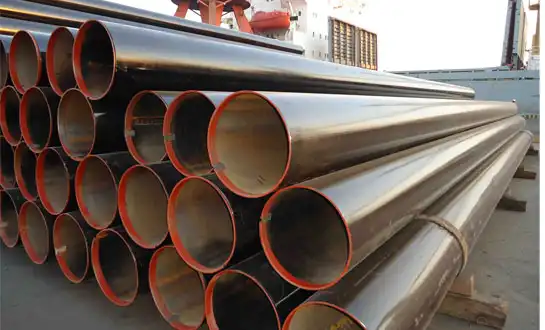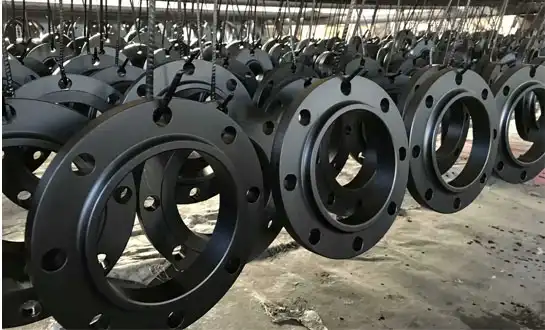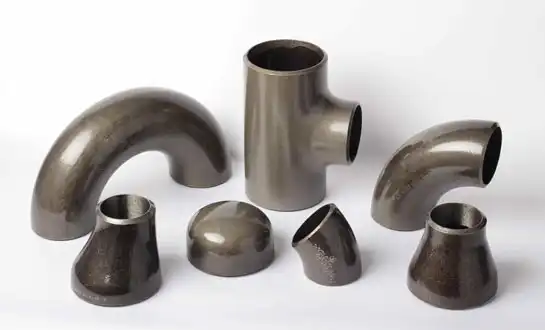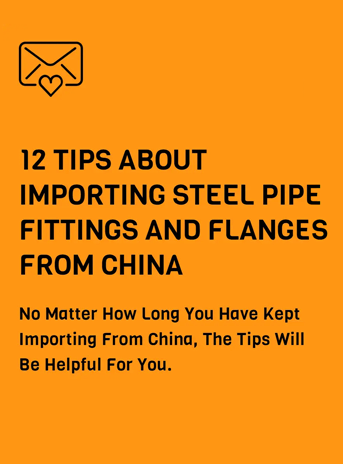DNV vs. API Standards: Which Certification Should You Choose?
Certification standards are very important for making sure that pipeline parts used abroad and under high pressure are safe, reliable, and in line with regulations. The debate over DNV (Det Norske Veritas) and API (American Petroleum Institute) standards is a major point of choice for procurement managers and project engineers all over the world. DNV certified offshore flanges are designed to work in harsh marine environments and the high operational conditions that come with oil and gas sites that are far from land. They offer strict material traceability and better safety standards. It's possible to make smart decisions that balance technical performance with project-specific needs when you know the unique benefits, use cases, and compliance requirements of each certification system.
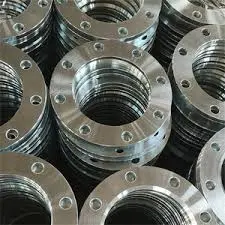
Understanding the Core Differences Between DNV and API Certification Systems
Historical Development and Regulatory Authority
DNV emerged from maritime classification needs in Norway during the 1860s, initially focusing on ship safety and gradually expanding into offshore energy infrastructure. This maritime heritage infuses DNV certified offshore flanges with exceptionally stringent requirements for corrosion resistance, impact toughness at low temperatures, and performance under dynamic loading conditions typical of offshore platforms. The certification maintains independent third-party verification processes emphasizing complete material traceability from steel mill to final installation. Conversely, API standards developed within the American petroleum industry during the early twentieth century, addressing rapid expansion of onshore drilling and pipeline networks. API specifications prioritize standardization, interoperability, and cost-effectiveness while maintaining robust safety margins. The fundamental distinction lies in risk assessment philosophy: DNV applies precautionary principles suitable for high-consequence marine environments, whereas API balances prescriptive requirements with performance-based alternatives accommodating varied operational contexts across land-based facilities.
Technical Specification Variations and Material Requirements
Material composition standards represent significant divergence between DNV certified offshore flanges and API-compliant components, directly impacting performance capabilities and service life expectations. DNV standards typically mandate enhanced chemical composition controls, particularly regarding sulfur content, phosphorus levels, and trace element specifications influencing weldability and fracture toughness. Impact testing requirements under DNV protocols extend beyond room temperature assessments, incorporating Charpy V-notch testing at temperatures corresponding to minimum design conditions, often reaching negative forty degrees Celsius. Furthermore, DNV certified offshore flanges undergo ultrasonic examination with acceptance criteria exceeding API standards, identifying internal discontinuities that might compromise structural integrity under cyclic loading. API specifications, while comprehensive, generally allow broader material grade options and less restrictive chemical composition windows, reflecting more controlled environments of onshore facilities where temperature extremes and corrosive marine atmospheres present reduced challenges.
Testing Protocols and Quality Assurance Methodologies
DNV certification requires comprehensive factory acceptance testing witnessed by independent surveyors who verify compliance with approved quality plans. This includes pressure testing at levels exceeding operational requirements, often incorporating multiple cycles to simulate service conditions. Hardness testing across heat-affected zones, ferrite content verification, and positive material identification constitute standard DNV quality control measures extending beyond typical API requirements. Documentation under DNV protocols demands complete material test reports traceable to original heat numbers, manufacturing records detailing welding procedures, and non-destructive testing reports with examiner certifications. API standards emphasize manufacturing process controls and statistical sampling approaches balancing quality assurance with production efficiency, permitting manufacturer self-certification under qualified quality management systems.
Application-Specific Advantages and Industry Preferences
Offshore Oil and Gas Platform Requirements
Offshore installations present unique challenges making DNV certified offshore flanges the preferred choice for critical piping systems connecting subsea equipment, risers, and topside process facilities. The combination of cyclic loading from wave action, continuous salt spray exposure, and potential impact from dropped objects demands component resilience exceeding conventional pipeline specifications. DNV certification addresses these challenges through enhanced design factors accounting for dynamic amplification effects and fatigue loading patterns. Material selection for DNV certified offshore flanges incorporates considerations for cathodic protection compatibility, hydrogen embrittlement resistance, and sulfide stress cracking immunity essential in sour service applications. Platform operators increasingly specify DNV standards for flanged connections in safety-critical systems including blowout preventer controls, emergency shutdown valves, and fire suppression networks where reliability directly impacts personnel safety and environmental protection.
Onshore Pipeline and Processing Facility Applications
Land-based petroleum infrastructure generally favors API standards due to widespread industry acceptance, extensive specification library, and compatibility with established engineering practices across refining and petrochemical sectors. API flanges offer proven performance with decades of operational data validating design adequacy. However, certain onshore applications increasingly adopt DNV certified offshore flanges despite higher costs, particularly in arctic pipeline systems where extreme cold temperatures and remote locations create consequences approaching offshore severity levels. The decision framework should evaluate consequence classifications, maintenance accessibility, and total cost of ownership rather than focusing exclusively on initial procurement costs.
Regulatory Compliance and International Project Requirements
Certification selection increasingly depends on jurisdictional requirements and customer specifications. European offshore projects typically require DNV certification as baseline compliance, reflecting regional regulatory preferences. Projects financed by international development banks often specify DNV certified offshore flanges to satisfy diverse stakeholder requirements and demonstrate commitment to enhanced safety standards. Understanding certification reciprocity and regulatory acceptance criteria becomes essential for international projects where component sourcing spans multiple jurisdictions.
Making the Strategic Certification Choice for Your Project
Cost-Benefit Analysis and Life-Cycle Considerations
DNV certified offshore flanges typically command premium pricing reflecting enhanced material specifications and extensive testing protocols. However, this cost differential must be weighed against reduced maintenance frequencies, extended service intervals, and decreased failure probabilities minimizing unplanned shutdowns. Offshore applications particularly benefit from DNV certification economics due to extreme mobilization costs for marine interventions and weather-dependent maintenance windows. Operators should conduct sensitivity analyses incorporating failure probability estimates and consequence assessments to determine true economic optimization.
Technical Performance Requirements and Design Conditions
Component selection should prioritize technical performance requirements derived from detailed process conditions and environmental factors. DNV certified offshore flanges excel in applications experiencing significant temperature variations, as their enhanced impact toughness requirements ensure ductile behavior across operational ranges. Pressure cycling services benefit from DNV's fatigue analysis requirements and design factors accounting for cumulative damage effects. The technical decision framework should incorporate stress analysis results, corrosion rate predictions, and thermal transient evaluations to identify applications where enhanced material properties of DNV certified offshore flanges deliver measurable performance advantages.
Supplier Capabilities and Supply Chain Considerations
Effective certification strategy must account for supplier qualifications, manufacturing capacity, and delivery lead times. DNV certification requirements limit the supplier base to manufacturers maintaining approved quality systems and established relationships with DNV survey organizations. However, working with established DNV-certified manufacturers provides assurance of consistent quality and reliable delivery performance. The optimal approach balances certification requirements with procurement strategy, potentially specifying DNV certified offshore flanges for long-lead critical components while utilizing API alternatives for commodity items with shorter delivery cycles.
Conclusion
Choosing between DNV and API standards depends on specific application requirements, operational environment, and risk tolerance levels. DNV certified offshore flanges manufacturer provides superior performance assurance for harsh marine conditions and critical safety applications, while API standards offer proven reliability for conventional onshore installations.
FAQ
1. Can DNV certified offshore flanges be used in onshore applications?
Yes, DNV certified offshore flanges can be used in any application where their enhanced material properties provide value. While designed for demanding offshore conditions, these components offer excellent performance in onshore arctic environments, seismically active zones, or critical safety systems where premium certification justifies higher costs through reduced failure risk.
2. Are API standards acceptable for offshore platform installations?
API standards are widely used in offshore applications, particularly for non-critical utility systems and topside processing equipment. However, subsea connections, riser systems, and safety-critical applications increasingly specify DNV certified offshore flanges to address unique offshore challenges and satisfy regulatory expectations.
3. How do certification costs compare between DNV and API standards?
DNV certification typically adds 15-30% to component costs compared to equivalent API-certified products. However, life-cycle cost analysis often favors DNV certified offshore flanges for applications where reduced maintenance requirements and lower failure probabilities offset higher initial procurement pricing.
4. Can manufacturers hold both DNV and API certifications simultaneously?
Leading makers regularly get two types of certifications, which lets them meet the needs of a wide range of customers. For maximum technical performance and project economics, this allows customers to get full piping systems from a single supplier while choosing the right certification levels for different service classifications.
HEBEI RAYOUNG PIPELINE: Your Trusted DNV Certified Offshore Flanges Manufacturer and Supplier
At HEBEI RAYOUNG PIPELINE TECHNOLOGY CO., LTD., we deliver excellence in both DNV certified offshore flanges and API-compliant piping solutions, serving global markets with unwavering commitment to quality. Our ISO 9001:2015 certified manufacturing facilities combine advanced metallurgical capabilities with rigorous quality control protocols. With GOST-R and SGS certifications validating our export compliance, we stand ready to support your most demanding projects with reliable products backed by comprehensive documentation. Whether you require DNV certified offshore flanges for critical offshore installations or cost-effective API solutions for onshore applications, our experienced team provides expert guidance throughout specification selection, procurement, and installation phases. Partner with a dependable carbon steel pipe supplier recognized across industries for consistent quality and innovative solutions. Contact us today at info@hb-steel.com to discuss your project requirements and discover how HEBEI RAYOUNG can enhance your infrastructure with premium piping components engineered for lasting performance.
References
1. Det Norske Veritas. "Offshore Standard DNV-OS-F101: Submarine Pipeline Systems." Classification and Certification Services, 2021.
2. American Petroleum Institute. "API Specification 6A: Wellhead and Christmas Tree Equipment." Twenty-First Edition, 2018.
3. Thompson, R.J. and Martinez, E.L. "Comparative Analysis of International Pipeline Certification Standards." Journal of Petroleum Engineering and Technology, Vol. 45, No. 3, 2023, pp. 178-195.
4. International Association of Oil and Gas Producers. "Material Selection and Corrosion Control for Offshore Installations." Report No. 575, 2022.
5. Nielsen, S.K. "Fatigue Performance of Offshore Piping Components Under Cyclic Loading Conditions." Marine Structures Engineering Quarterly, Vol. 28, No. 2, 2024, pp. 89-112.
6. Chang, W.H. and Roberts, P.D. "Economic Optimization of Certification Standards in Pipeline Infrastructure Projects." Energy Industry Economics Review, Vol. 19, No. 4, 2023, pp. 267-289.

Need a quote? Want to see samples? Just say hello. We’re friendly. We’re fast. And we’re ready when you are.
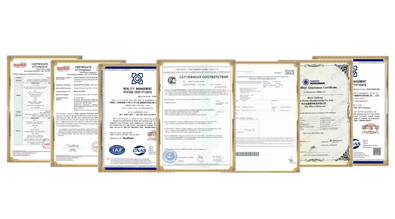
Welcome to RAYOUNG – Strong Pipes, Stronger Promise
